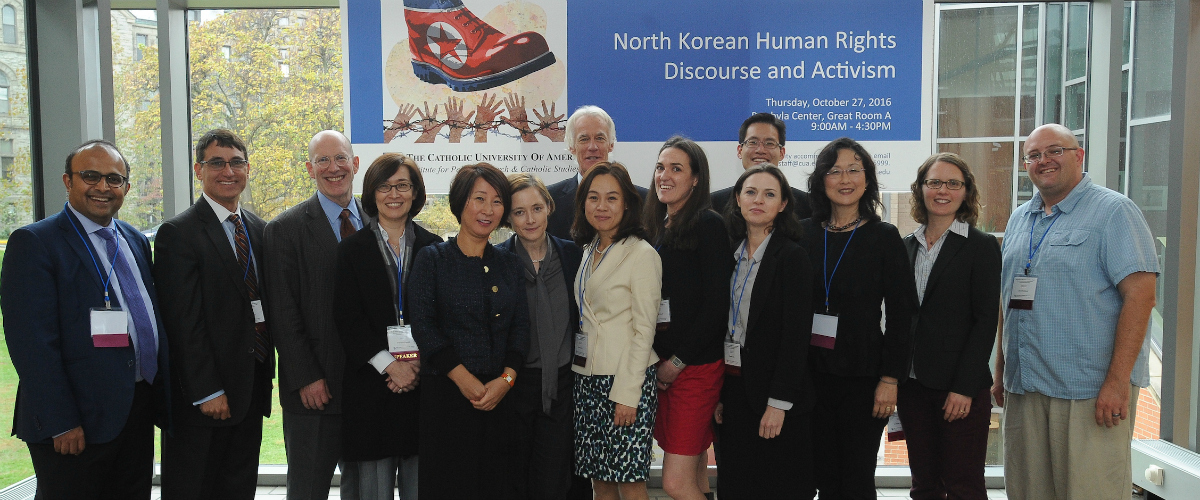

Influential thinkers in the social sciences gathered at The Catholic University of America on Oct. 27 for a daylong conference exploring the growing international awareness surrounding human rights in North Korea.
The conference, “The Evolution of North Korean Human Rights Discourse and Activism: Domestic and Transnational Dimensions,” was sponsored by the Institute for Policy Research & Catholic Studies (IPR) and featured prominent professors, activists, and policy leaders.
“Although most people are aware of human rights violations in North Korea, less understood is the rise of the domestic and international advocacy network, which drew attention to North Korean human rights abuses in the first place,” said IPR Fellow Andrew Yeo, an associate professor of politics who helped organize the event.
“Our conference aimed to shed light on North Korean human rights activism,” said Yeo. “The event was extremely productive in advancing new ideas about the role and efficacy of human rights actors including the United Nations, non-governmental organizations, and governments in challenging the North Korean regime’s human rights abuses.”
Over the course of four sessions, panelists discussed the history of discourse about North Korean human rights in the United States, Europe, and Asia. They also talked about the Commission of Inquiry on Human Rights in the Democratic People’s Republic of Korea, which was established by the United Nations Human Rights Council in 2013 to investigate human rights violations and ensure accountability.
In the second session of the day, a panel of experts spoke about how networks of North Korean defectors, activists, and transnational networks have resulted in an increased awareness of Korean human rights violations around the world.
During his keynote address, Stephan Haggard, the Lawrence and Sallye Krause Professor of Korea-Pacific Studies at the University of California in San Diego, spoke
Haggard said that all work in the country should be guided “to a significant degree by a concept to eliminate cruelty.” One significant way to do that is by helping North Korean refugees escape the country's authoritarian regime and successfully resettle in a different place, he noted.
“The topic of North Korean human rights discourse and advocacy is ultimately an issue about the right to life and dignity,” said Yeo. “Catholic University is an ideal location to raise awareness regarding this issue to the broader scholarly and policy communities.”
For more information on the conference, including the list of panelists and discussed topics, visit IPR.
Read more about the University’s Institute for Policy Research & Catholic Studies.